This piece is part of the Taiwan-U.S. Quarterly Analysis series, which features in-depth analysis of important issues in Taiwan and the Taiwan-U.S. relationship by leading experts, with the goal of providing a range of perspectives on developments relating to Taiwan.
As tensions rise over the Taiwan Strait, the urgent sense of threat is increasing in Japan. So is the realization that trilateral cooperation with the United States and Taiwan is needed.
Preventing and coping with the military crisis across the Taiwan Strait has been regarded as one of the main raisons d’être of the Japan-U.S. alliance for decades, along with the defense of Japan and the Korean Peninsula. North Korea has long been Japan’s number one threat, but now China has replaced it. In a recent public opinion poll in Japan, 80% of respondents answered that they felt threatened by China. Those polled were not even asked if they felt threatened by North Korea.
Why Japan is worried
The reason why the threat from China is getting increased attention in Japan is not just China’s tenaciously aggressive activities around the Senkaku Islands. It’s also the emerging perception that Taiwan’s problem is also Japan’s problem. If Taiwan were to be attacked, Japan would inevitably be attacked as well, mainly because Japan hosts the U.S. Armed Forces at several major bases and facilities throughout the country, including the U.S. Seventh Fleet. Taiwan and Japan are situationally in the same operational theater when it comes to facing potential aggression from China.
This kind of view gained further traction when then Japan Prime Minister Yoshihide Suga and U.S. President Joseph Biden put out a joint statement after their first meeting in April that said, “We underscore the importance of peace and stability across the Taiwan Strait.” Another poll conducted soon after this meeting showed that 74% of the Japanese public — an overwhelming majority — supported this commitment.
How Japan has supported Taiwan
This strong support, along with the Japanese public’s perception of the threat from China, has given rise to a sentiment of “resist China and assist Taiwan.” When China imposed sanctions on the import of pineapples from Taiwan, Japanese consumers responded by voluntarily purchasing Taiwanese pineapples. When Taiwan was struggling to secure COVID-19 vaccines, partly because China allegedly blocked their import, the government of Japan quickly and repeatedly donated some of its inventory to Taiwan. When Taiwan decided to join the Comprehensive and Progressive Agreement for Trans-Pacific Partnership (CPTPP) trade framework, Japan immediately expressed support.
These examples are clear manifestations of the consensus view that Japan should support Taiwan in the face of mounting pressures and intensifying intimidation from China. Behind such consensus is, of course, a realization that supporting Taiwan is not just a demonstration of goodwill to a democratic neighbor but also necessary to protect Japan’s interests from China, whose strategic intentions raise fundamental doubts and fears among the Japanese population.
However, beyond support for pineapples, vaccines, and CPTPP, if Japan wants to substantiate its commitment to the “peace and stability across the Taiwan Strait” at the policy level, it has no choice but to turn to the Japan-U.S.-Taiwan trilateral framework with the United States at its center.
Why Japan needs to cooperate with the United States on Taiwan
The need for this trilateral framework stems from Japan’s limits to having only “working relations on a non-governmental basis” with Taiwan, a consequence of switching its diplomatic recognition from Taipei to Beijing five decades ago, when the expectation for the relationship with China was much more optimistic. Under this self-imposed restriction, there is no way for Japan to conduct direct and meaningful policy coordination with Taiwan, much less to work together militarily to deter or repel an invasion by China. Japan does not even have an active-duty defense attaché in Taipei. In the Ministry of Defense in Tokyo there is no section or even a single official who is formally tasked with managing the relationship with Taiwan. The official communication channel is close to nonexistent.
The only way to overcome this systemic challenge and to coordinate effectively with Taiwan is to go through the United States, which has a much deeper wide-ranging relationship with Taipei based on the Taiwan Relations Act (TRA). The law stipulates that it is the policy of the United States to assist Taiwan to defend itself. For example, it was recently reported that the United States sent a special operations unit and a contingent of Marines to Taiwan to train Taiwanese military forces.
Japan’s intention to institutionalize the trilateral relationship is clear. It was demonstrated when Japan joined the Global Cooperation and Training Framework (GCTF), which was originally launched by the United States and Taiwan. The Japan-Taiwan Exchange Association, which is the unofficial representative of the Japanese government in Taiwan, has co-hosted all GCTF workshops since 2019. This has created a trilateral framework, even though it is non-governmental and non-military.
Japan has a legal and policy framework to respond to military confrontations that involve foreign countries other than the United States, when such situations pose serious threats to Japan’s security. In reality, however, it is hard for Japan to conduct such military operations alone.
This institutionalization of the Japan-U.S.-Taiwan relationship is by no means an easy task. The fundamental challenge is to have a unified view on strategic objectives and the best way to achieve them. This seems simple and self-evident, but it is not necessarily so.
The difficulty of finding a consensus on Taiwan
The long-held U.S. approach to Taiwan issues is to commit to helping Taiwan with its self-defense capability, as is stipulated in the TRA. The Trump administration broke away from this policy when it declassified the “U.S. Strategic Framework for the Indo-Pacific” a week before handing over power to the Biden administration. It said, “Devise and implement a defense strategy capable of defending the first-island-chain nations, including Taiwan.” This could be understood as meaning that the United States itself would take direct military action to defend Taiwan, instead of just helping Taiwan to defend itself. Biden seemed to imply that his administration has a similar approach on a couple of recent occasions, most recently during a CNN town hall on October 21. Asked if the United States would come to the defense of Taiwan, he said, “Yes, we have a commitment to do that.” But the White House immediately clarified his statement to say that the president did not announce any change in the U.S. policy and that “we will continue to support Taiwan’s self-defense.” This rather suggests that the official policy of the United States stays with the TRA, and the United States maintains its so-called strategy of ambiguity.
Japan’s position is more conservative. It does not go beyond the commitment that Japanese Prime Minister Suga made in the joint statement with Biden, which is to “underscore the importance of peace and stability across the Taiwan Strait and encourage the peaceful resolution of cross-Strait issues.” A prominent Taiwan scholar in Japan emphasized that this is not a pledge that Japan would defend Taiwan. Of course, it made big news when then Deputy Prime Minister Taro Aso stated a couple of months after the Suga-Biden summit that Japan “would have to defend Taiwan” with the United States if the island is invaded by mainland China, but his statement was never endorsed by the Japanese government.
For now, neither Japan nor the United States clearly pledges that it would directly intervene in a military conflict to defend Taiwan.
Taiwan’s changing defense strategy
The other potential problem is the defense strategy of Taiwan itself.
Taiwan’s defense strategy is now going through a rather confusing transition. The Overall Defense Concept (ODC), which was launched in 2017 and was described as a “revolutionary new approach to Taiwan’s defense” by a former senior U.S. Department of Defense official, suddenly disappeared from the 2021 Quadrennial Defense Review of Taiwan, which was released in March this year.
It once looked as if Taiwan was fundamentally restructuring and updating its defense strategy under the ODC by employing an asymmetrical approach to overcome its decisive resource gap with China. The essence of Taiwan’s asymmetric capabilities is to equip the military forces with “a large number of small things,” such as sea mines and anti-ship cruise missiles instead of advanced fighter jets and heavy tanks. This basic direction may not change, but now it is hard to predict where the transition will eventually end up. A fierce battle over strategic thinking within Taipei’s national security policy circle is reported in the Taiwanese media.
The question is whether Taiwan can come up with a new systemic defense strategy based upon this asymmetric approach. The jury is still out.
Uncertainty over this strategic transition in Taiwan makes it more challenging for Japan and the United States to conduct meaningful strategic coordination with Taiwan and to eventually establish a workable, efficient trilateral framework. If Japan and the United States do not know how Taiwan will fight, they cannot help Taiwan.
More coordination is also needed in other less politically charged domains, such as humanitarian assistance, disaster relief, and cybersecurity. Japan should probably aim to set up cooperation in these areas as a first step to improve trilateral cooperation.
The Brookings Institution is committed to quality, independence, and impact.
We are supported by a diverse array of funders. In line with our values and policies, each Brookings publication represents the sole views of its author(s).
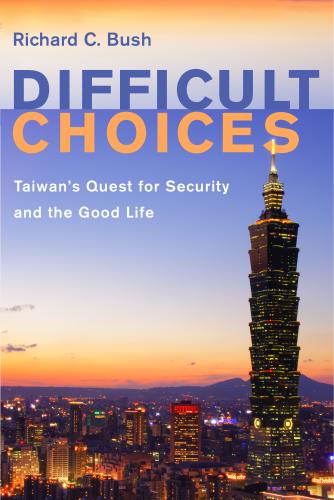
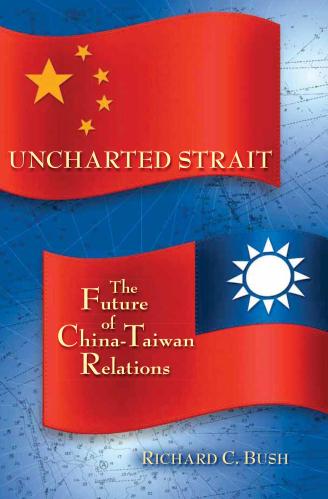
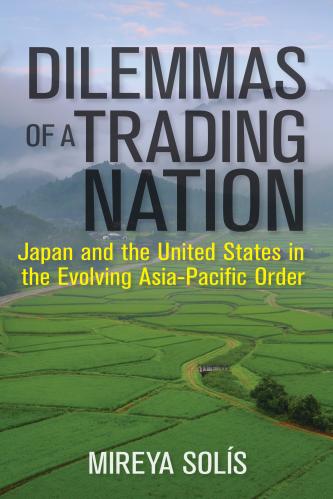
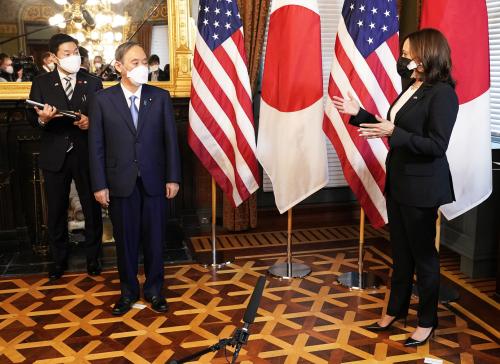
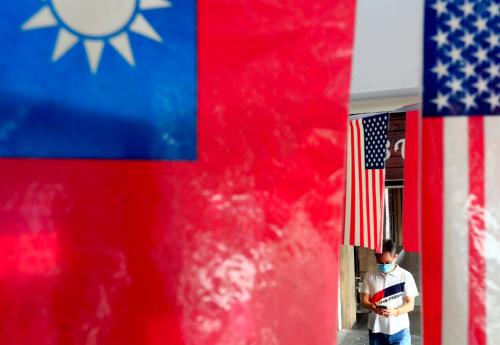
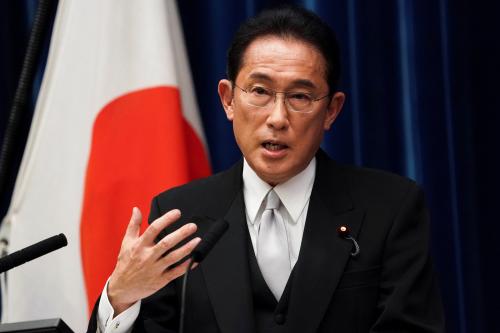
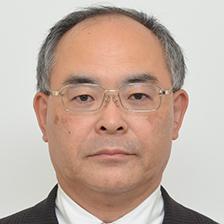
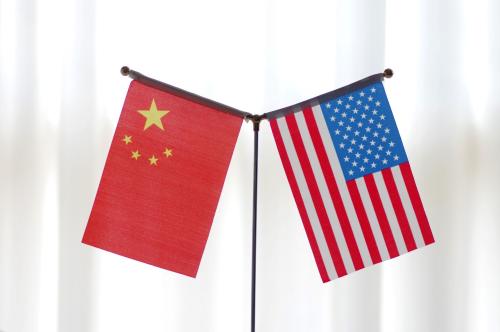
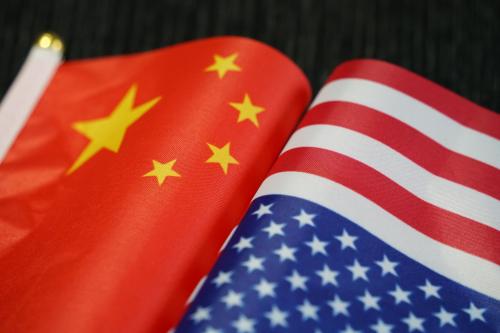

Commentary
How should Taiwan, Japan, and the United States cooperate better on defense of Taiwan?
October 27, 2021